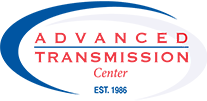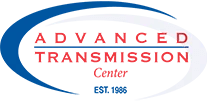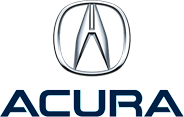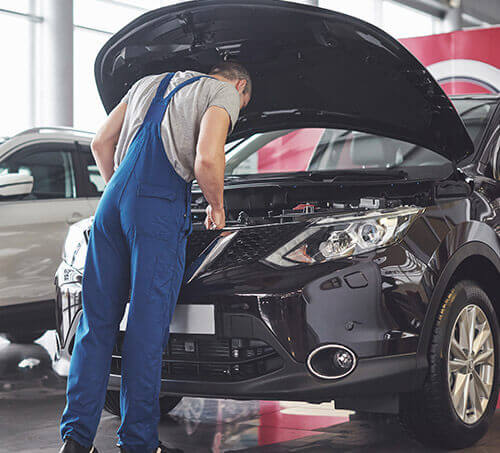
The greatest enemy of a transmission is traffic. If you find that hard to believe, you aren’t alone. After all, cars and trucks are made for driving, and that includes traffic. Whether it’s light on the country backroads, moderate in your hometown on a Friday night, or heavy in the Denver Metro traffic during rush hour, what’s so bad about traffic?
Sure, traffic conditions, or what you might consider heavy traffic, varies depending on where you live. If you are in Kalispell, Montana, you might have 12 cars at a stoplight during high traffic times. Here in the Denver area, however, traffic can get really heavy and before you know it—Bam!—it’s bumper-to-bumper, hovering around 10 mph, with 15 miles left to go.
It’s this time of the daily commute that, while necessary if you are going to get to and from your job, is the most stressful of all, not just for you, but for your car as well. Make that drive often enough and you both might need to see a counselor, or at least a transmission specialist, to make sure your transmission stays healthy and has all the coping strategies it needs.
Constantly Shifting
When dealing with bumper-to-bumper traffic during rush hour, it isn’t the braking that causes transmission problems. (Worn brake pads, on the other hand, are a different issue.) With this type of traffic, considered a severe driving condition, your transmission is constantly shifting back and forth between first, second and third gear. In these gears your vehicle’s air intake is relatively low compared to intake at higher gears. This means you are not taking in enough air to get proper cooling flow because the radiator can’t do its job. Your vehicle needs to get into—and be able to stay—in the higher gears where it gets more cooling flow.
Add to that, downshifting in a manual transmission or automatic can put excessive load and wear on the transmission and the hard starts and stops experienced can wear out transmission mounts. Worn mounts are often overlooked cause of transmission damage.
Overheating
As much trouble as shifting can cause, even worse is overheating the transmission. In fact, 99 percent of transmission problems can be attributed to overheating. High traffic volume—and the resulting driving conditions—can certainly contribute to an overheated transmission.
The optimal temperature range for transmission fluid is 150 to 200 degrees. Above that, for every 20 degrees bad things happen, starting with formation of varnish, followed by seals hardening, plates slipping, seals and clutches burn out, carbon is formed, and, ultimately, failure.
As important as all the gears, plates and seals are to a transmission, the fluid is truly the lifeblood that keeps everything working smoothly, providing cooling properties and maintaining fluid pressure. If transmission fluid is old, its ability to manage temperature goes down.
Synthetic transmission fluid is preferred for its superior ability to handle the heat and be rust and oxidation resistant. It also enhances smooth shifting and can help extend the life of your transmission. For more information on transmission fluid, view our recent post on which fluid to use in your vehicle.
Elevation
Higher elevations, like those we have in Denver, often have people thinking of snowboarding, skiing, and snowmobiling during the winter months, and hiking, fishing, riding ATVs and exploring the outdoors during the summer. Not to mention hunting season and general travel.
When going on all those excursions, we don’t go alone. Our car, SUV or truck takes us to those beautiful places and if it’s having headaches or other problems, then we are stuck at home, and no one wants that.
Keep in mind that elevation not only affects bodies that are unaccustomed to it, but it also affects your vehicle, and vehicles don’t ever get acclimated to it. This is because Denver is at 5,280 feet above sea level, compared with Chicago at 594 feet and Los Angeles at 285 feet, and has a lower oxygen level.
With less oxygen, there is some loss of power to your vehicle. You will notice the difference when driving from the valleys into the higher mountains, similar to getting easily winded while hiking in the mountains if you are not from that area. Those trips into the mountains surrounding Denver are a lot of fun. As you drive to different locations, and go back down the twisting, turning roads, you will notice the need to do a significant amount of up and downshifting to hold your vehicle back and keep from wearing out the brakes. As you would expect, this equals more wear and tear on your transmission. This is not unusual, for either people or vehicles; however, few vehicles were designed with Denver’s unique conditions in mind. Most Colorado residents have become accustomed to heavy weekend traffic in and out of the mountains. The weather conditions and lower oxygen levels become a magnified problem when also faced with traffic.
Drastic Change in Temperatures
If you live in Florida, you can pretty much depend on the weather staying warm and in San Diego, you can as well. Venture north and toward the interior of the country and that all changes.
Hang around in Colorado long enough and you’ll quickly find out that drivers here don’t have that luxury. In fact, it’s not unusual for the Denver Metro area to see a temperature shift from one day to the next. If fact, Denver residents occasionally experience temperature fluctuations up to 50 degrees within a day. This type of temperature shift can cause a great deal of wear on transmissions.
With heat causing transmissions so much trouble, excessive heat can lead to accelerated wear and tear. This is because transmissions and related drivetrains are made of hundreds of components, numerous materials and fluid that expands and contracts with substantial changes in temperature.
Get Your Transmission Checked
The best thing you can do for your vehicle is have it checked regularly for low/aging transmission fluid and health of the interior components. A lot of transmission shops will check the fluids for free. General mechanics might not be as comfortable with checking and may not notice the need for a repair, so they don’t mention it.
A transmission shop knows what to look for, and has no trouble checking not only the fluid, but for signs and symptoms of any other problems. Just checking the fluid can be problematic as most newer vehicles, five years old and less don’t have transmission dipsticks, instead requiring a special tool.
For a quick, honest and thorough transmission check-up, make an appointment at one of our two locations with Advanced Transmission Center. We will give you the free TrueTest Inspection, guaranteed to give you the most accurate diagnosis possible. You can be confident that we will only recommend a service you truly need. We look forward to helping you.
Westminster – Northwest Metro Denver: (303) 421-4140
Lakewood – Southwest Metro Denver: (303) 922-4102
Advanced Transmission Center is a Colorado-owned and operated auto repair shop with locations in Denver / Lakewood and Westminster. ATC specializes in driveline issues such as automatic transmission repair, four wheel drive repair, clutch replacement, differentials, manual transmissions and CVT. As Colorado's first AAA approved shop our goal is to provide accurate, timely service with exceptional customer satisfaction. All of our technicians are certified in the latest makes and models and we are one of the few transmission repair shops with a nationwide warranty.



 Free Customer Towing Service
Free Customer Towing Service  Free TrueTest™ Inspection
Free TrueTest™ Inspection  Fast Transmission Services
Fast Transmission Services  Comprehensive Warranty in Denver
Comprehensive Warranty in Denver 

























